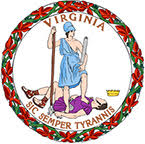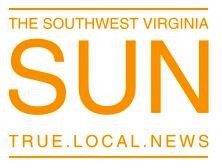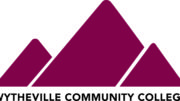The Virginia Board of Education on Thursday approved new statewide standards for early childhood learning and development. The adoption of the new guidelines — known as Virginia’s Birth-to-Five Early Learning and Development Standards — marks a key milestone in the implementation of Governor Ralph Northam’s plan to consolidate oversight and administration of state early childhood programs, regulations and standards under the Board of Education and the Virginia Department of Education.
Virginia’s Birth-to-Five Early Learning and Development Standards replace the state education board’s 2013 Foundation Blocks for Learning and the Virginia Department of Social Services’ Virginia Milestones of Early Childhood Development.
“With our action today, we move closer to realizing Governor Northam and the General Assembly’s vision of creating a unified system of early childhood education designed to eliminate the wide inequities in school readiness that exist today among children in the commonwealth,” Board of Education President Dan Gecker said. “These new standards will promote consistency and quality for children, educators and care givers in all of the settings where our youngest learners are preparing for kindergarten, including child care centers, family day homes and preschools.”
House Bill 1012 and Senate Bill 578 — approved by the 2020 General Assembly — transferred the authority to license and regulate child care programs from the state Board of Social Services and Department of Social Services to the Board of Education and VDOE, effective July 1, 2021.
Early childhood programs will begin using Virginia’s Birth-to-Five Early Learning and Development Standards during the 2021-2022 academic year. VDOE’s Office of Early Childhood will develop tools and resources to support early childhood caregivers, educators, program leaders and families with implementation, with an emphasis on supports for those serving Virginia’s underserved populations of children.
“At the core of these standards is the belief that all children in Virginia have tremendous potential, and deserve to start school ready to learn,” Virginia Chief School Readiness Officer Jenna Conway said. “Related to that conviction is the belief that early childhood educators and caregivers need access to clear, actionable guidance that supports their understanding of how infants, toddlers and preschoolers develop, what skills they will need, and how adults can help children thrive.”
The new standards provide expectations for early learning and development in five areas, as follows:
* Approaches to play and learning;
* Social and emotional development;
* Communication, language and literacy development;
* Health and physical development, and
* Cognitive development, including science, social science, mathematics and fine arts.
The guidelines reflect typical development patterns for young children across six overlapping age bands, from birth to age five. While not intended as a curriculum, the guidelines provide a tool for caregivers and educators in child care centers, family day homes and preschool programs to support development and acquisition of the critical skills and attributes outlined in the document.
“The goal of early care and education is to help all children prepare for kindergarten and for a good start in life,” Superintendent of Public Instruction James Lane said. “Virginia’s Birth-to-Five Early Learning and Development Standards will provide families and all early childhood providers with a resource for understanding what children should know and be able to do as they grow and change from birth until they enter formal schooling.”
Equity for all young learners is central to Virginia’s Birth-to-Five Early Learning and Development Standards, both in terms of process and content. VDOE led a lengthy and inclusive process in developing the standards, including:
* Recruiting a diverse set of stakeholders for standards-drafting workgroups and the solicitation of feedback and public comment;
* Establishing a workgroup at the outset that focused on equity when constructing the draft; and
* Conducting a second public comment period in fall 2020 to collect additional feedback on cultural competency and responsiveness, inclusivity, and the usefulness and accessibility of the document to diverse audiences.
“Establishing a culturally-responsive and inclusive set of foundational standards is critical to ensuring their use and applicability to all early learners and their caretakers,” Board of Education Vice President Jamelle S. Wilson said. “Because of this focus on inclusion, I believe these standards represent a key step toward eradicating inequities and disparities in child outcomes and will equip teachers and caregivers with the necessary tools to address the needs of all learners.”
Smart Beginnings Alexandria, in partnership with The Center for Alexandria’s Children, is conducting a pilot of the new early learning and development standards with 10 family day homes in the city.
“By focusing on all areas of learning, and taking into consideration the overlap of skill mastery at different ages, the unified standards demonstrate child development across the early childhood continuum. This is imperative as many providers, particularly in family day homes, work with mixed-age groups of children and develop activities to meet the needs of children at their progression levels,” Michelle Smith Howard, executive director, Smart Beginnings Alexandria, said. “We welcomed the opportunity to pilot the standards with our family day home providers to give feedback from the perspective of a crucial, but often unheard, voice in our early care and education community.”
“I like the simple way it is written. The format makes it easy to find the standards and ages,” said Kenia Velasco, a family day home provider participating in the pilot. “Something that I really liked is the division of ages and age overlaps, since children develop in different ways and we can place them in one age range or another. It is an excellent tool for planning activities according to the ages and development of children.”
VDOE’s Office of Early Childhood is developing resources, introductory training materials and an innovative new micro-credential based on the standards for providers to support statewide implementation next fall.
“In designing and providing training and resources, VDOE will pay particular attention to the needs of providers serving historically underserved children who are more likely to enter school not ready in one or more critical areas of literacy, math, self-regulation and social skills,” Conway said. “For instance, we are designing a new micro-credential that educators can access via their mobile phones to help them learn and apply the new standards.”
Two years ago, the commonwealth committed to revising and unifying its early learning standards and guidelines under a single state agency in its application for a Preschool Development Grant from the U.S. Administration of Children and Families, a division of the federal Department of Health and Human Services.
As of this grant, Virginia also developed a strategic plan for the creation of a statewide mixed-delivery system to provide high-quality child care and early learning programs for every child in the state. The federal agency approved a $9.9 million initial award in December 2018 and a $33.5 million three-year follow-up award in December 2019.
Supported by the federal grant, development of Virginia’s Birth-to-Five Early Learning and Development Standards began in August 2019. A diverse team of content experts and researchers from Virginia Commonwealth University and James Madison University led the effort. Specialists from VDOE ensured alignment of the new standards with state kindergarten readiness assessments, the Standards of Learning, and the learning and development standards followed by federally funded Head Start programs.
State OKs standards for early childhood learning






